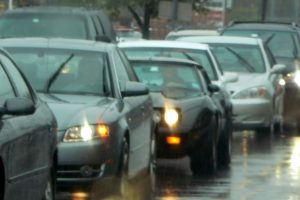A worker for Amway, a multi-level marketing company that sells home, health and beauty care products, is suing the company and alleging he and other sellers should be classified and paid as employees, rather than independent contractors. 
Our Los Angeles employee misclassification attorneys are watching this case closely because it could impact a host of other similar types of business models, such as LuLaRoe, Young Living, Scentsy, Rodan + Fields, Avon Products, Herbalife and others.
Amway sells products like detergent and mouthwash, promoting itself as a means for sellers to become “small business owners.” They thrive on person-to-person sales. These types of companies have come under fire for reportedly predatory business models that require salespersons to buy several hundred or thousand dollars in products just to get started. In some cases, individuals have drained their savings and retirement accounts. The Federal Trade Commission has issued warnings about these types of pyramid schemes, but the companies remain in business.
Most of these companies refer to their salespersons as independent “participants,” “distributors” or “contractors.” But are they?
Not according to the plaintiff in the latest California employment lawsuit against Amway. Continue Reading ›
 Orange County Employment Lawyers Blog
Orange County Employment Lawyers Blog



